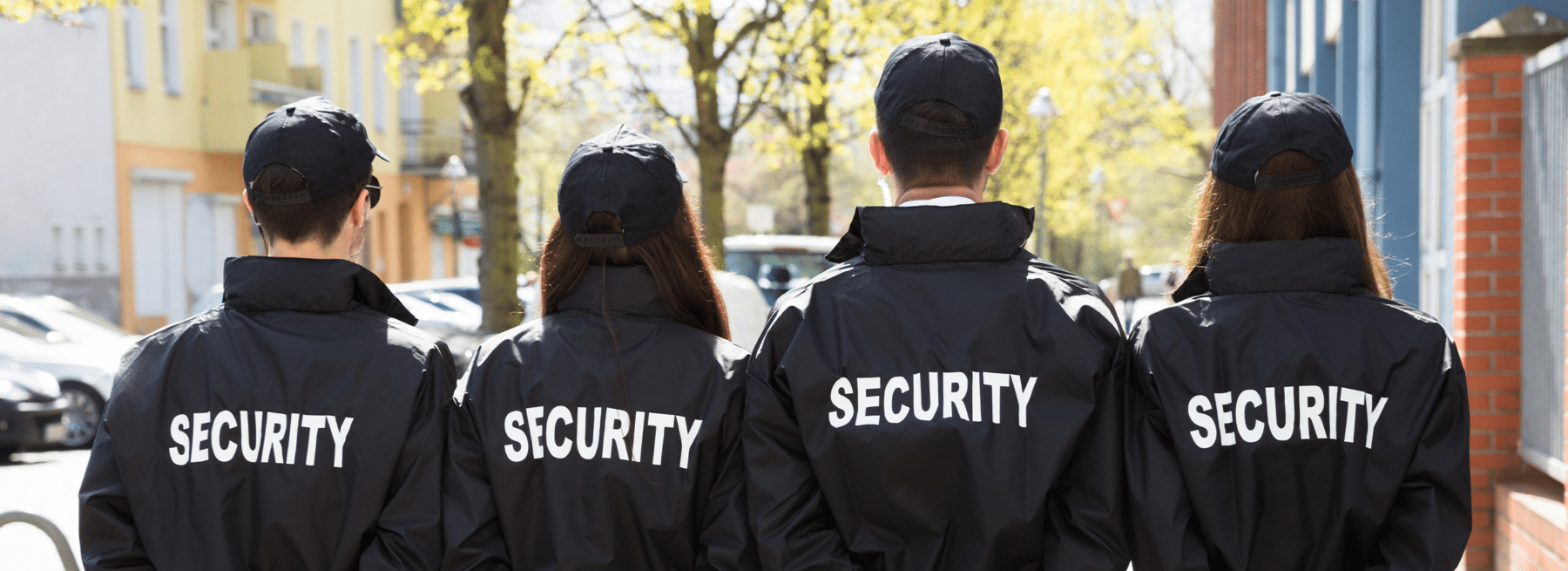One of the side effects of the crisis is the staffing shortage. This includes security guard shortages. Yes, even more than two years after the start of the pandemic. And this is a serious problem because it puts your business at risk. How can you secure your business when you don’t have enough security guards?
With fewer people on the property and the security guard shortage, who is watching your inventory and expensive assets? Organized crime gangs and other thieves look for gaps in security and take advantage.
Why There Is a Security Guard Shortage
With businesses not being fully staffed, employees are less likely to pay attention to what’s going on around them. Add to that a security guard shortage and there’s no one watching your business.
Businesses experiencing staffing and security guard shortages do not have enough security layers to protect themselves. They are putting their high-priced assets at risk. These items cannot be replaced fast or for the same price. Thanks to inflation, it costs more to replace lost items. Therefore, it’s critical to secure your business and help prevent theft in the first place.
Many variables come to play in creating employee and security guard shortages. COVID is still out there. Anytime someone shows any signs of illness, they often must stay home or get a COVID test to confirm whether they have it.
For essential businesses that have seen their profits soar, they’re struggling to maintain staffing levels to support customers. Even if you have the budget for security guards, it may be hard to find any that are available. Because of the shortage, their rates are likely to be higher than the norm to take advantage.
But it may turn out to be a blessing in disguise. Companies that grappled with having enough security guards on duty have found a better solution. One that’s more cost effective, safer, and sees more of the property than security guards can.
Unacceptable Security Guard Training Standards
Many customers don’t realize that security guards don’t have that much power or training. They are not equivalent to police officers. Far from it. Security guard training, if there’s any, does not prepare them from ignoring their fight or flight response that they end up fleeing. Police officers undergo hours and hours of training for many months.
The security guard industry has inadequate training standards. In the U.S., every state has its own requirements for licensed security guards. Most of these standards are not enough to prepare guards for what the job requires.
Some states recommend security guards receive roughly eight hours of pre-assignment training, eight to sixteen hours of on-the-job training, and eight hours of annual training. Put another way, someone can obtain a license to be a guard in about 14 days. Do you want to trust your business with someone with only two weeks of security guard training?
Canada is also dealing with the same problems with security guard training. Michael Bryant, the head of the Canadian Civil Liberties Association, says that the training and regulations haven’t kept up with the industry’s growth.
How Video Surveillance Solves the Security Guard Shortage Problem
With fewer security guards or no one at your business, who is going to report problems? It’s not just crimes that need monitoring. It’s possible for flooding to happen without anyone in the building. Inclement weather, general plumbing problems, and frozen pipes can happen anytime and get out of hand.
Video surveillance with remote monitoring can watch your entire property 24/7. This is better than what you get with security guards who can only see what’s around them. If it’s at night, their visibility is worse.
You benefit from remote video surveillance in multiple ways. The most powerful and effective remote video surveillance uses a combination of video analytics and trained monitoring operators. Whenever video analytics finds a match on one of its many programmed scenarios, it alerts the operator who can check it out and acts as needed.
How the monitoring operator reacts depends on the situation. In the case of trespassers, the operator could issue a warning through an on-site speaker. If the suspects don’t leave the property, then the next call can be to law enforcement. Is there a sign of flooding or a leak? If so, then the operator can call the right people to handle it ASAP before more damage occurs.
By the way, the monitoring operator is not on your business property. They are safely located in a remote monitoring center.
You gain another advantage of using operators instead of security guards. Monitoring operators are unlikely to play a part in internal theft like security guards can and have. An apartment building in Miami learned that lesson the hard way when one of their guards was caught on camera stealing something from a resident’s purse when she was being treated by paramedics.
Additionally, employees may feel safer knowing security cameras are properly monitored at all times. If a business has cameras and no one watching them, then it could create a liability issue. A business that uses remote video surveillance can decrease liability. As a result, you may be able to get your insurance premiums reduced. That’s because security cameras with monitoring can lower your risk.
On top of everything, consider the costs. The costs related to security guards vary by company and state. In a real-world example, a shopping center in Dallas paid $14,000 per month for security guards to watch the property. That equates to $168,000 a year.
This was too expensive. The retail center needed a cheaper security solution and switched to video surveillance. One year of video surveillance with remote monitoring plus the equipment could cost around $64,000. That’s almost 60 percent less than the price of security guards. The equipment is a one-time fee.
Once that’s paid off, the company only pays for the monitoring service. The longer the company uses remote video surveillance, the cheaper it becomes. Security cameras can cover areas that security guards can’t always get to, such as rooftops and back alleys.
The Remote Video Surveillance Advantage
Unlike many security solutions, video surveillance with monitoring is proactive. It can help avert crime and prevent damage. Security guards are not proactive. They can only respond when they observe something. By the time they notice, the damage could already be done.
Or the security guards are responsible as this video shows two clips of security guards. One is literally sleeping on the job and the other does donuts in a golf cart. Do you know what your security guards are really doing?
There’s more. A study has shown that many security guards have a criminal history as reported by CNN and the Center for Investigative Reporting. The security guard industry also has such a high turnover that 31 states do not require background checks.
Here are some benefits of video surveillance:
- Faster response times: Companies like Stealth Monitoring have partnerships with local law enforcement all across North America. When emergency receives calls from Stealth, they typically make the calls a high priority.
- 24/7 monitoring: Around-the-clock monitoring helps deter crimes and minimize damage.
- Liability protection: Recordings provide evidence for insurance claims, lawsuits, and police investigations.
- Complete site coverage: Security cameras can see the entire property simultaneously including areas where security guards can’t patrol safely.
- Delivers savings: Helps cuts risk, avert crime, and save on insurance premiums. Video surveillance with human monitoring costs up to 60 percent less than security guard services.
You will gain peace of mind with remote video surveillance because you’ll know video analytics and human eyes are watching your entire business. Since all recordings are saved, you’ll have the proof you need. Best of all, adding video surveillance to your team can lead to a fast return on your security investment.
Where to Look for the Right Video Surveillance Vendor
Not just any remote video surveillance vendor is qualified to protect your business. Some vendors install more cameras than you need to drive up the cost. Look for a security company with experience in your industry who can design a layout to use the fewest number of cameras for maximum coverage.
As you search for the right remote video surveillance system, ask about day and night monitoring. You want to verify the security cameras can see at night. Many cities around North America have been contending with extreme natural disasters. Some video surveillance systems can withstand the effects of natural disasters.
The reality is technology breaks. Any security consultant that tells you their technology never breaks is not telling the truth. To fill this gap, ask security vendors about system health checks. These run regularly to help ensure the system is working. The last thing you need is for the cameras to stop working when a crime happens and have no evidence of it.
What system health check does is analyze the security cameras, hard drives, and other equipment. It can spot any problems related to power, Internet, wireless and camera outages. A lot of times, these can be fixed remotely without the security consultant coming to your property.
To help you choose the right video surveillance with a remote monitoring company, refer to this list of questions. If you’d like to learn more, browse this website and check out these videos catching criminals in action and overcoming other problems. For more information about remote video surveillance and business-grade security solutions, please contact us.

